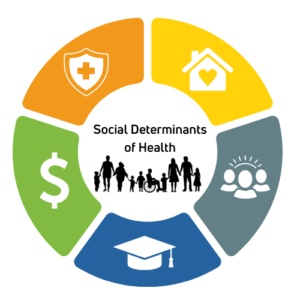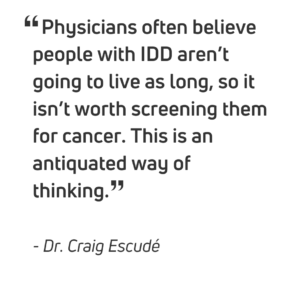Karen Green McGowan, Founder of IntellectAbility, Passes Away Leaving Behind Legacy of Advocacy and Education
Karen Green McGowan, Founder of IntellectAbility, Passes Away Leaving Behind Legacy of Advocacy and Education
IntellectAbility continues Karen McGowan’s legacy of improving the health and well-being of people with intellectual and developmental disabilities.
CLEARWATER, FL, UNITED STATES, April 9, 2025 /EINPresswire.com/ — Karen Green McGowan, Founder of IntellectAbility, former President of the Developmental Disabilities Nurses Association, and lifetime advocate for people with intellectual and developmental disabilities (IDD), passed away on April 2, 2025, at the age of 84. McGowan was a visionary whose work transformed the field of IDD supports and services.
Karen McGowan began her career in healthcare in 1962 as a labor and delivery nurse at Mailstrom Air Force Base in Montana. She helped deliver hundreds of babies at Mailstrom before marrying in 1965 and moving back to her home state of Iowa. Soon after, she accepted a position at Glenwood State Hospital School, an institution for people with severe intellectual disabilities.
McGowan’s mentors had cautioned her about working at Glenwood, where overcrowding, neglect, and extremely high mortality rates were the norm. Their concerns reflected the stark reality of the time. People with disabilities were often devalued, and the field was seen as a professional dead end.
But McGowan saw it as an opportunity to create positive change and make a difference in patients’ lives. Recognizing the need for better education and training in the field, Karen became deeply invested in equipping others with the knowledge to provide quality care. She authored numerous training manuals for clinicians on the physical and nutritional management of people with disabilities, filling a critical gap in available resources.
Driven by her passion for education, McGowan became an independent clinical nurse consultant in 1977. As a consultant, Karen provided technical assistance to more than 40 states and nine Canadian provinces. She also consulted internationally with Disability Rights International, assessing care conditions in Romania, Serbia, the Republic of Georgia, Mexico, and Ukraine.
In 1992, while consulting on the transition of 240 people from institutions to community settings, Karen was asked to develop a way to determine which of them required specialized care. She assembled a team of innovative nurses to create an effective solution using key health indicators such as eating ability and mobility. The result was the Health Risk Screening Tool (HRST), a 22-item screening tool that evaluates risks in critical areas.
As demand for the HRST and educational resources grew, Karen founded IntellectAbility, formerly known as Health Risk Screening, Inc., an organization dedicated to equipping supporters, clinicians, and administrators with tools and training to improve health outcomes for people with disabilities.
Central to the organization’s approach was Karen’s commitment to Person-Centered Planning and Person-Centered Thinking, which emphasize the importance of tailoring support to each person’s unique needs, preferences, and aspirations. Now an industry leader, the HRST has transformed how health risks are identified and managed, ensuring people with IDD receive the care and support they need to thrive.
In line with her commitment to reducing risk, Karen played a key role in popularizing the term Fatal Five – a phrase used to highlight the most preventable causes of death among people with IDD. Building on the previously recognized Fatal Four, she added sepsis and later gastroesophageal reflux disease (GERD) to the original list, which included aspiration, constipation, dehydration, and seizures. By equipping supporters with critical knowledge to recognize and respond to these risks, Karen helped establish terminology and awareness that continue to shape best practices in the IDD field today.
“We are deeply saddened by the passing of our founder. Her vision, compassion, and unwavering dedication to people with intellectual and developmental disabilities built the foundation of IntellectAbility,” said Dr. Craig Escudé, President of IntellectAbility. “Karen was more than a leader — she was a friend, a mentor, and the heart of our mission. Her legacy lives on in the work we do, and we’ll carry it forward with the same heart and purpose that guided her every day.”
IntellectAbility provides tools and training to agencies, governmental entities, and supporters of people with intellectual and developmental disabilities to foster early recognition and mitigation of health risks, thereby improving health and wellness. One such tool is the Health Risk Screening Tool (HRST), of which they are the sole developer, producer, and distributor. The web-based HRST is the most widely used and validated health risk screening instrument for people with intellectual and developmental disabilities. IntellectAbility also provides numerous health-related and person-centered service training for supporters of people with IDD. With an unrelenting focus, IntellectAbility works to fulfill its mission of improving health and quality of life for people with intellectual and developmental disabilities and other at-risk populations. For more information, visit www.ReplacingRisk.com
Daniel Mutter
MutterWorks
+1 305-926-1792
daniel@mutterworks.com


 Specialized training and tools are required to improve emotional well-being and the overall health of people with intellectual and developmental disabilities.
Specialized training and tools are required to improve emotional well-being and the overall health of people with intellectual and developmental disabilities.



 IDD support teams do not have to wait on public health system changes to see improvement in health outcomes and happiness for those they serve; we can start addressing SDOH today on an individual basis by Asking, Screening, and Advocating.
IDD support teams do not have to wait on public health system changes to see improvement in health outcomes and happiness for those they serve; we can start addressing SDOH today on an individual basis by Asking, Screening, and Advocating.

 New Study Finds Significantly Worse Cancer Survival Rates for People with Intellectual and Developmental Disabilities
New Study Finds Significantly Worse Cancer Survival Rates for People with Intellectual and Developmental Disabilities


